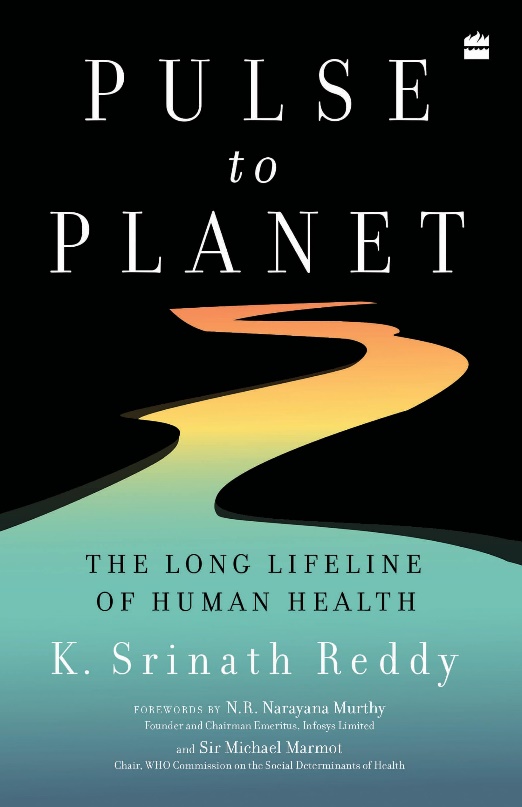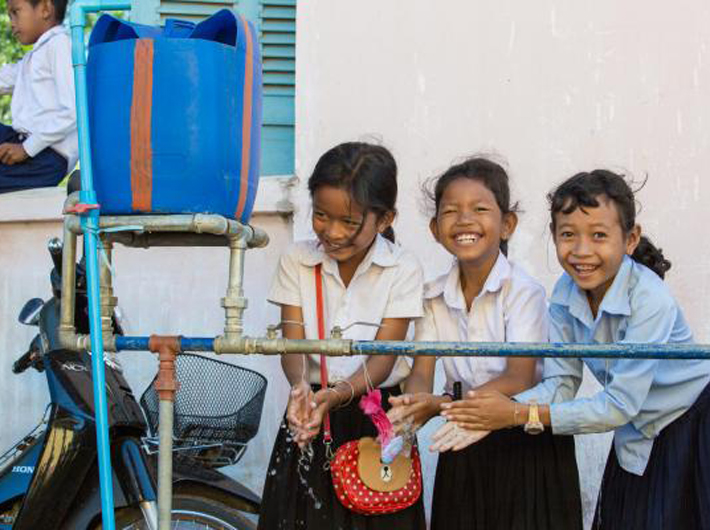An excerpt from ‘Pulse to Planet’ by K. Srinath Reddy – a compelling call to safeguard future of humanity
Pulse to Planet: The Long Lifeline of Human Health
By K. Srinath Reddy
With Forewords by N.R. Narayana Murthy & Sir Michael Marmot
HarperCollins | 264 pp | Rs 599

Human health is determined by the interaction of many factors. Biology; beliefs and behaviours; nutrition; social, political, economic, commercial and economic determinants; environmental and ecological factors contribute to human health in the context of planetary wellbeing. Also consider the capacity and competence of health systems to promote, preserve, protect and restore health; and the support provided by science and technology. All of these are interconnected and influence each other. While they are often discussed in isolation, it is essential that the connection between these complex systems is understood so that a broad societal consensus is built around the actions that are needed to advance human health in all dimensions.
Through ‘Pulse to Planet’, leading public health expert K. Srinath Reddy aims to promote this understanding to contribute to building a healthier society for present and future generations. “As a clinician cardiologist and a public health expert, I have long recognised that health has great value for individuals and for society as a whole,” Reddy says in a statement. “Beyond the internal workings of the body, intricate and exquisite as they are, there are many social, economic, environmental, commercial and political determinants which influence health at both individual and societal levels. These often act in concert.
“Health and nutrition disorders, societal maladies and environmental damage are often viewed in isolation, when only a recognition of their connections can bring about meaningful solutions. Young people of today must be able to identify the main drivers of the dangers to their health, respect the interconnectedness of life and environment, and seek solutions which reflect collective will and global solidarity. Through this book, I have tried to help them do so by providing a unifying perspective which is missing from reductionist debates.”
‘Pulse to Planet’, releasing on September 1, has garnered high praise from well-known thinkers and opinion makers, including Jeffrey Sachs, Gopalkrishna Gandhi, Julio Frenk, S. Ramadorai, and Baron (Prof.) Peter Piot, while N.R. Narayana Murthy and Sir Michael Marmot have contributed forewords to it.
Reddy, trained as a cardiologist and epidemiologist, was head of cardiology at the AIIMS, Delhi, before establishing the Public Health Foundation of India to create five Indian Institutes of Public Health. These are building broadband capacity in public health education, research, skill-building, policy development and programme implementation. Among numerous honours, he was awarded the Padma Bhushan in 2005.
Here is an excerpt from the book that links two vital pillars of good governance and of vibrant socieities:
Education: A Positive Influence on Health
It is an axiom of public health that education improves the health of societies and protects the health of individuals. ‘A good quality education is the foundation of health and well-being. For people to lead healthy and productive lives, they need knowledge to prevent sickness and disease.’ This is a declaration by the United Nations Educational, Scientific and Cultural Organization (UNESCO) that further affirms that ‘education is a catalyst for development and a health intervention in its own right’.
The Incheon Declaration of 2015 on Sustainable Development Goal 43 affirms that education endows the skills, values and attitudes that enable citizens to lead healthy and fulfilled lives and make informed decisions. In a bidirectional relationship, ill health impedes access to education and the attainment of knowledge and skills.
There is a wealth of evidence, from comparisons within and across countries, that bears out these assertions on the positive impact of education on the health status of individuals and populations. Higher levels of education usually provide greater access to health-related information which, when assimilated and stored as knowledge, can promote and sustain healthy behaviours.
Education also increases opportunities for higher-income-earning employment. Better economic status, in turn, enables a person to afford more nutritious and safe food, live in better housing with the assurance of clean water and sanitation and amidst healthier physical and climatic surroundings.
Higher income, coupled with good education, also enables one to access better healthcare. Health-seeking behaviours, insurance literacy, ability to engage in participatory decision-making with the treating doctor, adherence to treatment and capacity for self-care are all better with higher levels of education. Worldwide, unhealthy behaviours such as tobacco consumption and alcohol abuse are negatively correlated with educational status. Such social gradients, across the levels of education, are most evident within individual countries while other differences dilute the association when different countries are compared.
Education Has Even Greater Impact than Income
While education and income often go together as positive determinants of health, education has a greater impact on health than income. Even a financially well-off person will not make healthy choices related to food, exercise or addictive behaviours, if education does not provide the requisite knowledge. On the other hand, an educated person is likelier to adopt healthy behaviours and make healthy food choices, even within the constraints of limited income.
At any given level of income, higher education offers better health protection. Ideally, healthy behaviours are most likely to be adopted when health literacy and analytic ability provided by education are supported by lowering of financial and access barriers to health-promoting agents and environments.
However, these relationships are not wholly independent, always linear or universal. The people of Hunza valley, with a host of centenarians, are healthy not because of high educational attainment but because of a pristine environment and healthy traditional diets.
Other communities too derive health benefits from traditional diets, including herbal medicines. In such cases, it is not the knowledge gained through formal education that promotes and protects health but tacit knowledge and experiential wisdom that provides the health benefit. While knowledge is gained most easily and widely from structured formal education, there are also other channels for acquiring health-friendly knowledge. Mass media also help to quickly disseminate health-relevant knowledge to a large number of persons whose formal education may be varied.
Social Media, Formal and Informal Channels of Education
The positive relationship of education with health was clearly evident in the twentieth century. However, the rapid growth of social media in the twenty-first century is blurring the benefit. The best-case scenario is of widespread rise in health and nutrition literacy through print, electronic and social media. While it is happening to some extent, the infiltration of fake news and anti-science propaganda into social media has proved harmful in the adoption of healthy behaviours. This has been painfully evident during the COVID-19 pandemic. Highly educated persons became prejudiced purveyors and deluded victims of false information, while less educated people were willing to trust government health workers.
For education, formal and informal, to result in knowledge that positively impacts health behaviours of a large number of people, we need to both raise the level of formal education by improving its access and quality and fast track health and nutrition literacy among the general population. The content of educational messages must be well founded on sound science, while taking into account the specific health needs and cultural practices of the population groups being addressed. Credible agencies and individuals must be engaged to quickly counter and contain fake news. The power of education can then be used to promote the health of populations and protect the health of individuals.
Educational Institutions and Students
Educational institutions can transform students into agents of health promotion. School and college students who are sensitized to health issues and motivated to adopt healthy behaviours at the personal level can also become change agents in the family, neighbourhood and the wider community. Health-promoting schools begin by changing their own environment, by ensuring clean water, good sanitation, adequate ventilation, playgrounds, ban on use of tobacco products (by students and school personnel) and by providing healthy food choices and beverages in school meals and cafeteria.
An educated and engaged younger generation can power health transformation in the country. There are several examples, from different countries, of young persons from schools and colleges leading movements for environmental protection, access to medicines, tobacco control, road safety and gender equity.
In India too, HRIDAY (Health Related Information Dissemination Among Youth) and SHAN (Student Health Action Network) have worked in schools to promote life-skills education by combining health literacy and informed health advocacy.
The former enabled teacher-assisted, peer-led health education for younger school students (learning the fact) while the latter catalysed advocacy by older students to align multi-sectoral policies to the health needs of society (learning to act). Several global youth meets on health, environment and sustainable development were also organized.
If education and health are to benefit from a synergistic relationship to advance human development, interactions and alliances are needed between many persons and organizations. This endeavour is a collective social responsibility. Individualism will not achieve the progress we need. So, we need to keep connected, locally and globally.
[The excerpt reproduced with the permission of the publishers.]
